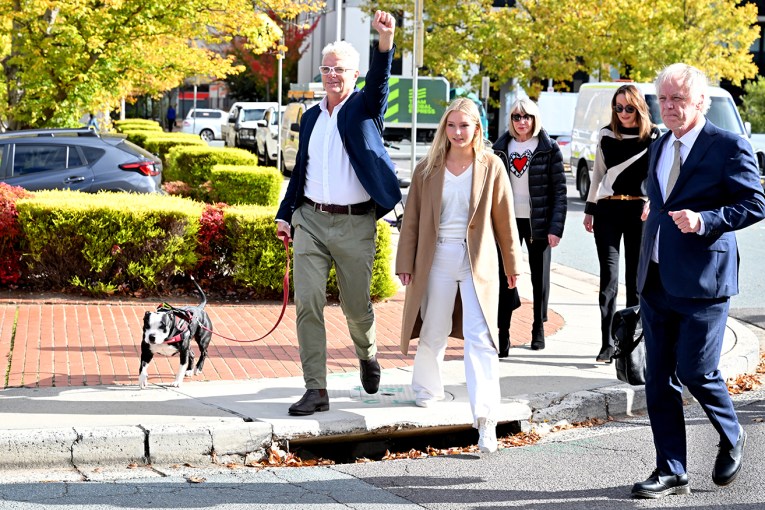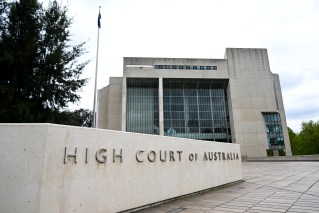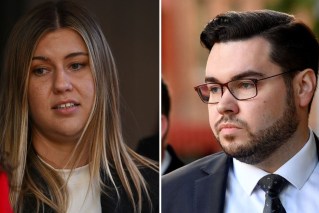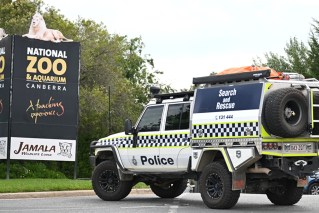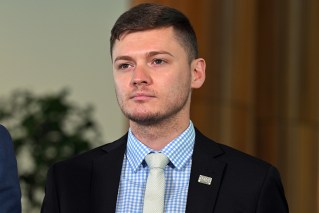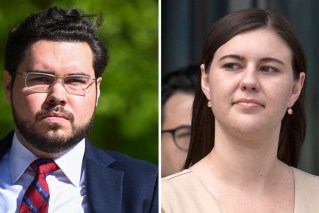Top cop’s ‘interference’ call in Lehrmann case
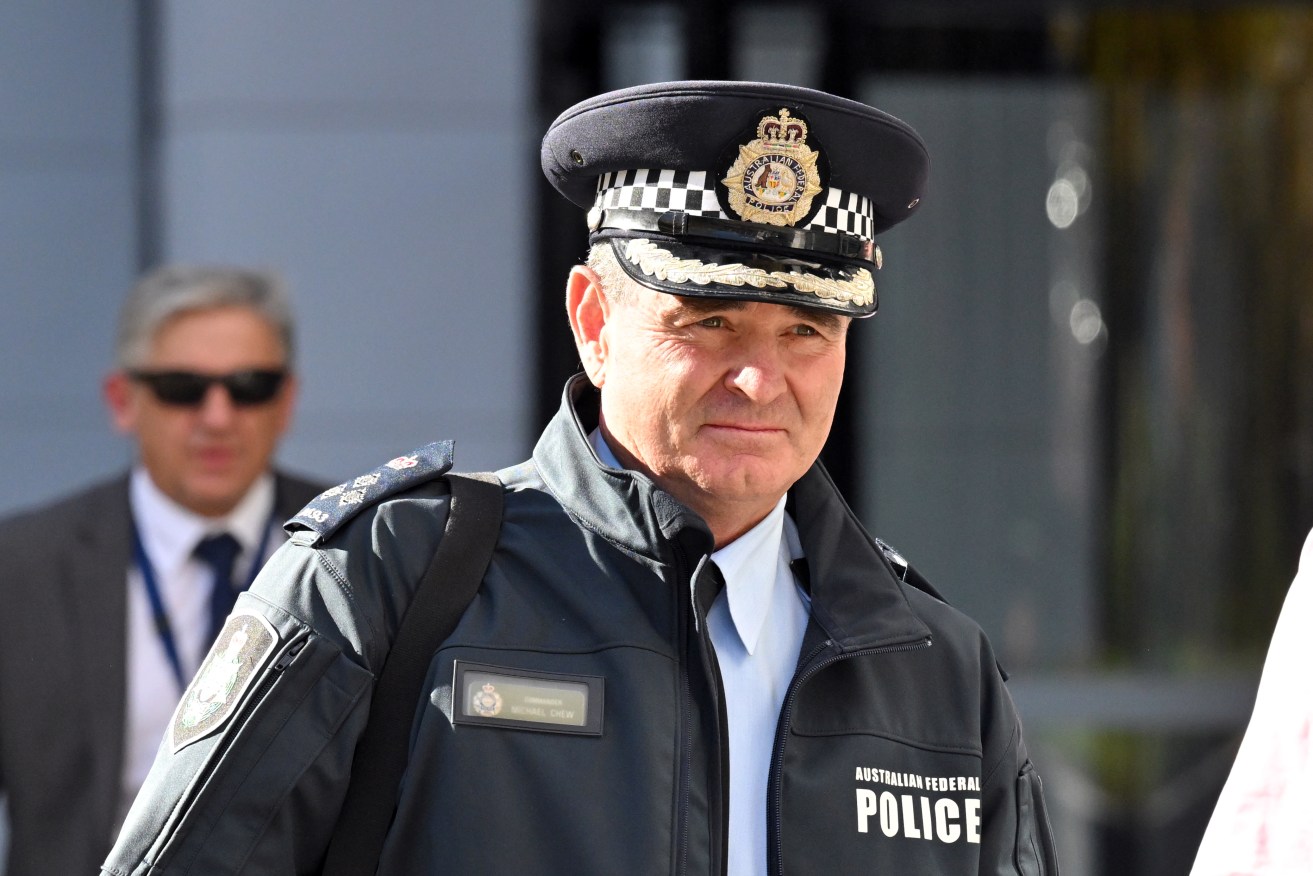
Australian Federal Police Commander Michael Chew arrives at the ACT Civil and Administrative Tribunal in Canberra. Photo: AAP
An Australian Federal Police commander says he did not mean to imply there was “political interference” in former Liberal staffer Bruce Lehrmann’s rape trial.
Commander Michael Chew appeared before an inquiry into how the ACT justice system handled a rape allegation against Mr Lehrmann made by his former colleague Brittany Higgins.
Officers investigating the high-profile matter reported directly to Commander Chew, but he was not directly involved in the day-to-day operations.
Ms Higgins alleged Mr Lehrmann raped her inside a ministerial office at Parliament House.
Mr Lehrmann denies the allegation.
Commander Chew said the case generated intense media scrutiny and political commentary, and this put pressure on investigators.
The inquiry has previously heard Commander Chew told an investigator: “If it was my choice I wouldn’t proceed but it is not my choice, there is too much political interference”, in relation to whether charges should be laid against Mr Lehrmann.
While he did not have a recollection or record of this conversation, Commander Chew agreed he would have used those words.
But he told the inquiry there was “no direct or indirect interference from any external sources”.
Asked if his use of the words “political interference” was unfortunate, Commander Chew agreed.
He said he instead meant there was “political interest” in the case, given the location of the alleged incident and who was involved.
“It could be misconstrued but ‘political interference’ doesn’t always refer to politics, the same as ‘political correctness’ doesn’t specifically refer to politics,” he said on Friday.
Commander Chew said his view was that the case against Mr Lehrmann was “weak” but he thought it met the threshold to go to trial.
“Did I think it was a strong case? Probably not,” he said.
“But when broken down to the issues of the investigation … we had an alleged victim with a version of events, an alleged offender with another version of events, limited corroboration and no forensics.
“The potential for a successful prosecution was there … it was a matter that should quite rightly be tested in court.”
Mr Lehrmann faced a criminal trial in the ACT Supreme Court which was derailed because of juror misconduct.
Charges were later dropped because of the impact a second trial would have on Ms Higgins’ mental health.
Earlier on Friday, Acting Assistant Commissioner Joanne Cameron blamed the territory’s chief prosecutor for confusing police about the legal threshold required to charge a suspect.
Director of Public Prosecutions Shane Drumgold previously told the inquiry he was concerned about what officers believed were the standard-of-proof tests required to charge someone.
In a statement to the inquiry, Ms Cameron said her understanding of the charging threshold for police officers was “reasonable and probable cause”.
But she said the DPP’s view was that the charging threshold for police was reached on the formation of a “suspicion”.
“Some police were being … confused by the strongly promoted view … that the threshold to charge should focus solely on the word ‘suspected’,” she said.
Ms Cameron said the prosecutor’s view was “liable to distract” police from conducting a thorough investigation to properly assess whether the charging threshold had been met.
“In my opinion it created confusion and placed unnecessary pressure on those police officers (and) it also blurred the lines between the distinct roles of the investigator and prosecutor,” she said.
Ms Cameron said the AFP was developing a “more robust framework” to make a clearer distinction between the decision to charge and the decision to prosecute.
Inquiry chair Walter Sofronoff said it was clear police officers had differing views and he anticipated making a recommendation to the ACT government to address this.
-AAP
